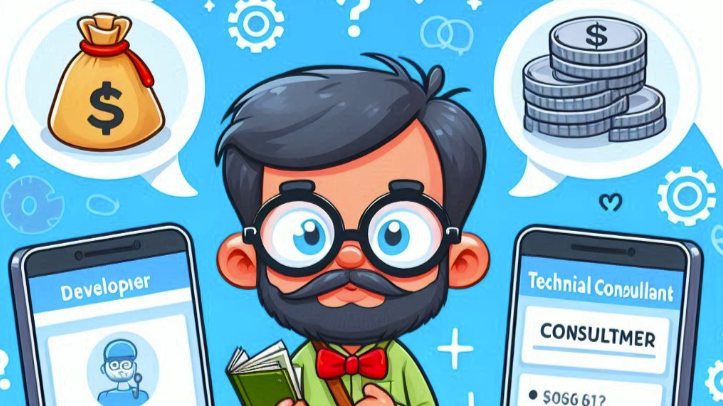When I look at the consultants who truly excel in our field, one key factor separates them from the rest: commercial acumen. It’s not just about knowing the technology inside out—it’s about understanding how solutions drive business value, influence decision-making, and align with broader strategic goals.
I’ve worked with brilliant developers who can build anything, but the ones who rise above the rest are those who understand why they are building it and what impact it has on the business. Let’s break down what commercial acumen looks like in consulting and why it’s essential.
1. Understanding the Business Model
A technically skilled consultant may develop a fantastic Power Platform solution, but a commercially astute consultant asks:
- How does this solution contribute to the client’s revenue, cost savings, or risk management?
- What are the key revenue streams and cost drivers for this business?
- How does this initiative align with their strategic priorities?
Example: I once worked with two consultants on the same project. One focused on the technical feasibility of a Power Automate workflow; the other took the time to understand the client’s operational costs and identified a way to reduce manual processing by 60%, translating into $500K in annual savings. Guess which one became a trusted advisor to the client?
2. Balancing Scope and Value
Developers love to build cool features. But in consulting, delivering value efficiently is paramount. Commercially astute consultants:
- Avoid overengineering and focus on delivering the minimum viable product that achieves business outcomes.
- Know when to push back on unnecessary feature requests that add cost but little value.
- Frame trade-offs in business terms: “We can add this, but it will increase licensing costs by X. Does the benefit justify the spend?”
Example: A client once requested a custom-built reporting dashboard. A technically focused developer would have built it from scratch, but a consultant with commercial acumen explored existing Power BI capabilities, demonstrating that 80% of the requirements could be met with a standard report—saving $30K in development costs.
3. Effective Stakeholder Management
Technical skills can solve problems, but people skills sell the solution. Consultants with commercial acumen:
- Speak the language of business, translating technical capabilities into financial and operational benefits.
- Navigate different stakeholder perspectives—from executives focused on ROI to end users concerned about usability.
- Understand procurement and budgeting cycles, ensuring proposals align with the client’s financial constraints.
Example: I’ve seen consultants lose deals because they pitched solutions to IT leaders without engaging finance or operations. One consultant I mentored changed his approach—before proposing a solution, he met with the CFO to understand budget priorities. The result? A refined proposal that fit within budget and was approved without resistance.
4. Commercial Awareness in Pricing and Contracts
Many consultants see pricing as an afterthought, but commercially astute ones understand:
- How to estimate effort accurately to ensure profitability without overcharging.
- When to offer fixed-price vs. time-and-materials contracts based on project risk.
- How to recognize scope creep early and manage it professionally.
Example: A consultant on my team once locked in a fixed-price deal without considering complexities in the client’s data migration. Halfway through, the project was in the red. A more commercially aware consultant would have structured pricing to include discovery work upfront, reducing the risk of unexpected costs.
5. Continuous Business Value Assessment
A consultant’s job doesn’t end when the project is delivered. Commercial acumen means:
- Checking in post-implementation to measure actual business impact.
- Identifying upsell or cross-sell opportunities that make sense for the client.
- Turning successful projects into case studies that help win new business.
Example: A consultant I worked with followed up three months after deploying an automation solution. They gathered usage data, quantified the time saved, and prepared a report demonstrating a 200% ROI. That report helped secure a follow-up engagement worth three times the original contract.
Final Thoughts
Technical skills are necessary, but in consulting, they’re not enough. The best consultants develop commercial acumen—understanding business impact, managing scope effectively, engaging stakeholders, structuring contracts wisely, and continuously delivering measurable value.
If you’re a technical consultant looking to differentiate yourself, ask yourself:
- Do I understand my client’s business beyond just their technical needs?
- Am I helping them make commercially sound decisions, or just implementing requests?
- How often do I connect my work to measurable financial or operational benefits?
Mastering commercial acumen isn’t just good for business—it’s the key to becoming a trusted advisor and a long-term success in consulting.
What’s your take? How do you apply commercial acumen in your consulting work?


Leave a Reply